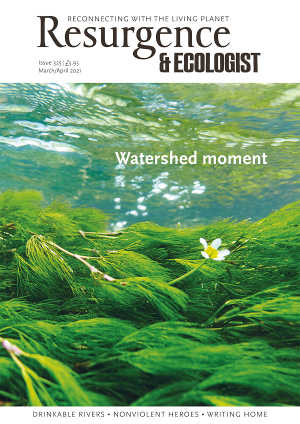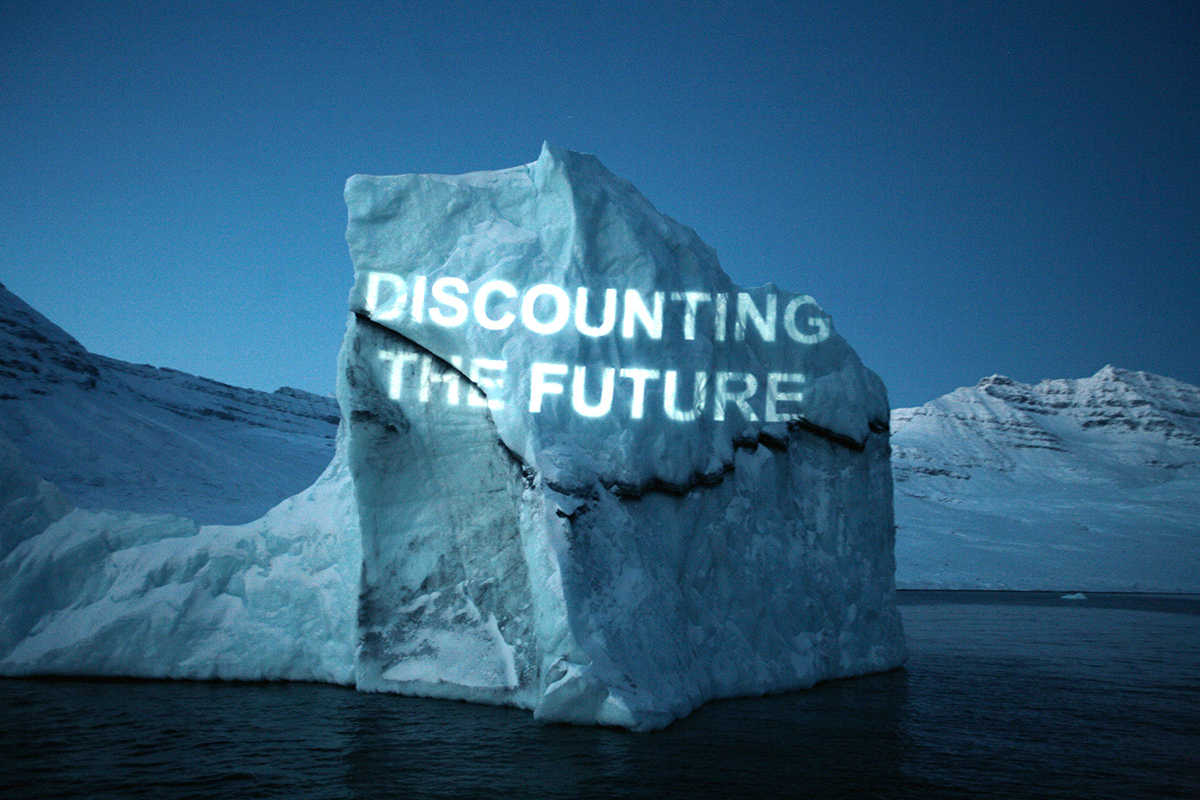Asking a collective global society to shift its day-to-day, learned behaviour – to evolve, in record time, a sustainable way for 8 billion people to live on our very modest planet – is a hugely challenging task. The solution is bound to be complex, full of contradiction and emotional conflict. This is artistic territory, where a poem, a performance, a piece of music can weave the zillion jumbled threads together into some form of meaning. As we watch our habitat under stress, dealing with its own virus of human activity, as we log our inadequate political response, compromised by industrial and consumer intransigence, the poet can, with one line, cut through to our emotional core.
In May 2020, international not-for-profit Cape Farewell commissioned the Siren Poets – Shagufta K Iqbal, Peter Bearder, Liv Torc and Chris White – to communicate this message. They did not restrict themselves to the written word, but amplified their ideas through performance, music, beat-box and collective force. Rising to the not insubstantial challenge of creating behaviour-shifting work, they embraced the complexity, made the quest personal, recorded films, and in September performed live at the Watershed, Cape Farewell’s HQ in Dorset. They were tasked to make their initial delivery virtual, a response to the Covid-19 restrictions, each reaching out to their own community via social media.
Shagufta K Iqbal ran an online workshop with her aunt, preparing food traditionally, underlining how the food we eat is a shared expression of social living, sadly restricted by the Covid-19 lockdown. She then teamed up with musician Pete Yelding to perform a haunting piece of poetic insight:
Yet we are eating a land and a sea
that tastes of what we have done.
But there is a song
that starts as a slight buzz,
sends a murmuring ripple,
building like waves through bodies.
Listen.
You are being called to do better than this.
Listen.
You are being called to protect more kinder than this.
– Shagufta K Iqbal, from ‘An Ode to An Nahl’
Peter Bearder created New Normal, a performance work where the delivery of the sounds of the words is inseparable from the words themselves. It is a scary, edgy piece that addresses the unconscious fear in all of us when faced with the scale of climate’s undeniable truth. Peter was dealing with his own personal mental anguish, but, as with great artworks, this powerful work – which is fear itself – can transform the personal into the collective.
Speaking of the opportunity to make work through the Siren Poets commission, Peter said:
“How can we deploy the human voice to disturb, charm and enchant in a time of Covid and climate change? The Siren Poets Project gives us a platform to try and answer these questions. My intention is to try and widen the cultural bandwidth around both Nature and poetry. I want to create poetry that speaks directly to planetary disintegration, poetry that decomposes and disfigures language, expanding its musical elements to express the primal drives of our animality. I want to throw up tangled liaisons between the psyche, the body, and the sprawling algorithms of the biosphere, combining spoken word ‘sound poetry’ with Gaia theory, transpersonal psychology, and digitally created soundscapes.”
Our online spoken word content reached an audience of well over 10,000, as well as generating an exceptional social media following. It engaged a total of 118 public participants across ten Siren-led creative writing workshops, generated a rich offering of online resources, and resulted in a live finale performance of the newly commissioned work, which was broadcast as an online public event in October 2020.
I created Cape Farewell 20 years ago to instigate a cultural response to the climate crisis. Realising that a lone artistic voice couldn’t address the scale of the climate challenge, I corralled like-minded artists, musicians, wordsmiths and designers from the creative estate to imagine what might be possible and perhaps inspire our way out of this ecological mess; to lay pointers for us to see light where it is too easy for darkness to prevail.
Ten years of Arctic expeditions drew attention to melting ice caps and stressed oceans, but the realisation dawned that there is no need to travel so far afield: the warming is affecting us all with uncontrollable fires, wilder hurricanes, rising seas, deluges of rain – but these are only the physical manifestations. The climate challenge is about what it means to be human and our collective footprint on this Earth, on which we are so dependent. In this challenge, it is we who are centre stage.
In September 2019, Cape Farewell installed Michael Pinsky’s sculpture Pollution Pods on the front lawn of the United Nations in New York for the climate extinction summit. We are planning an expedition to the Marshall Islands in July 2022 to join the Marshallese as they endure what could be the demise of their 3,000-year-old ocean culture, and, closer to home, with RiverRun, we are exploring the chalk rivers of Dorset and how agricultural ingress and human waste are causing the algal blooms in Poole Harbour. Post Covid, our Siren Poets will perform their Siren call at festivals and music venues across the country.
Despite its brilliant passage of evolution, humanity has created some serious challenges that we cannot duck any more. The only way to rebalance is to redraw our framework and eradicate our dependence on burning the planet’s resources and the digging up of billions of years of planetary history for very short-term human gain. A cultural shift on a global scale is required – creative insight and intervention has the power to give light and direction.
You can watch the Siren Poets Finale online capefarewell.com/sirenpoets.html







